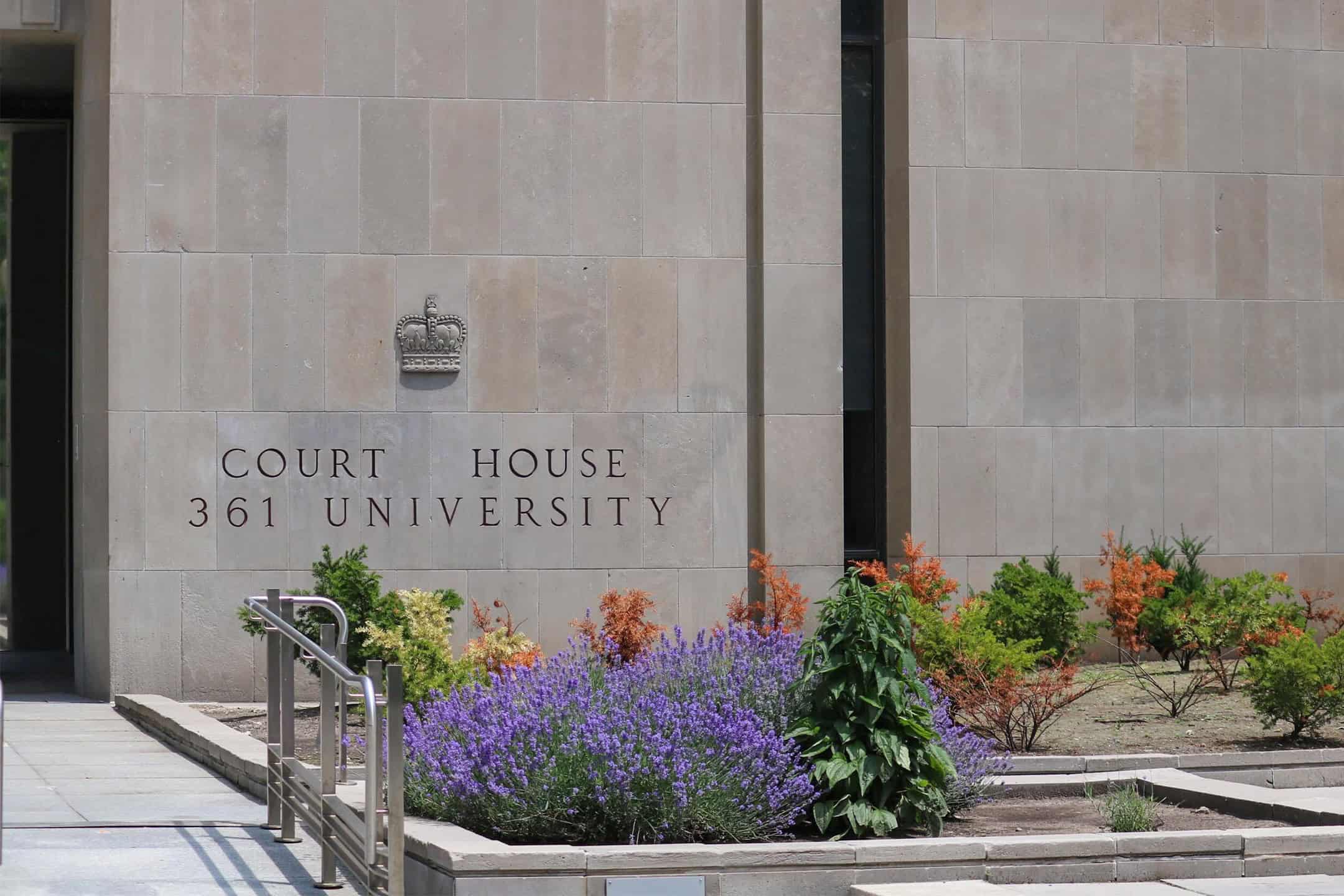Content warning: This article mentions antisemitism.
On June 19, U of T’s lawyer at Lenczner Slaght LLP argued at the Ontario Superior Court of Justice (OSCJ) that the ongoing student encampment at King’s College Circle is unlawful and should be cleared by police.
This marked the first day of the two-day injunction hearing at the OSCJ, which will determine whether the court can mandate the Toronto Police Service (TPS) to clear the “People’s Circle for Palestine”— the camp that has received a flurry of attention since protesters set it up on May 2.
Monique J. Jilesen, the lawyer representing the university, argued that the encampment is on the university’s private property, reflects poorly on the university, offends community members, and restricts the freedom of others — which she claimed were sufficient grounds for the police to remove it.
“Complicity in this genocide”
The first day of the hearing was for U of T’s legal team to make its arguments against the encampment.
Around 70 people were in attendance, with many wearing keffiyehs and several shirts with slogans such as “Jews For a Free Palestine.”
The student protesters held a press conference in front of the OSCJ building before the court’s proceedings.
UofT Occupy for Palestine (O4P) spokesperson Erin Mackey — a fourth-year student studying political science and environmental studies — told reporters that the encampment submitted a legal settlement to the administration on June 18, but that U of T rejected it.
Mackey noted that “the [offer] that our lawyers presented to them was quite reasonable. It asks them to commit to divesting from arms manufacturers and their complicity in this genocide and genocides that are happening around the world, and U of T rejected that.”
“I think that that tells you all you need to know about where U of T stands and where its interests lie,” she concluded.
At 6:00 pm, in an email addressed to the university community, U of T President Meric Gertler explained that while U of T received a new proposal from encampment representatives, the administration submitted a counter-proposal and will continue to pursue the injunction application.
“Unsafe”
U of T’s lawyer also referenced community members who said that they felt “unsafe” by alleged comments made by encampment supporters.
Jilesen noted the affidavits — which are written testimonies — from community members that include allegations of student protesters’ using hateful language such as “Jews go back to Europe.”
Jilesen also made allegations of hateful signage at the encampment, referring to pictures of chalk signs on the ground that read “Jews in the sea Palestine will be free.” She did not confirm if encampment members created these signs.
The lawyer also pointed out a projection that was cast onto Convocation Hall by Palestinian Youth Movement Toronto — a grassroots movement in support of Palestinian liberation — that showed Gertler, who is Jewish, with blood-covered hands. Jilesen said “there’s a possible interpretation that this could be viewed as blood libel,” which is an antisemitic trope dating back to the Middle Ages that falsely accuses Jewish people of using Christians’ blood in ceremonies.
Private property
Jilesen also argued that King’s College Circle is the university’s private property and therefore in the school’s jurisdiction to decide to clear it.
She questioned that if the university is not the private property owner of the field, then “who does it belong to? Who get[s] to make decisions about it?”
“These images show the intended use of the property which is Front Campus,” she said as she presented images of people on the field prior to the encampment and fences. “Professors could go to eat breakfast. Students could play ball, but the front campus has now been [made] inaccessible to the university community at large.”
Views reflected on U of T
Jilesen also argued that people might mistakenly associate viewpoints of the student protesters with that of U of T itself if the university permits the encampment to continue.
“If they’re marching along King’s College Circle and they’re holding signs, everyone in the world knows that that is a protest, that it is temporary, it’s going through the university, and the university is not associating itself with that language,” Jilesin argued. She added that since the encampment is permanent — now on its forty-ninth day — it seems as though it’s associated with the university itself.
On June 20, the lawyers representing the student protesters are speaking to the court. If the injunction order is granted, student protesters will have 24 hours to clear the camp.
With files from Genevieve Sugrue.


